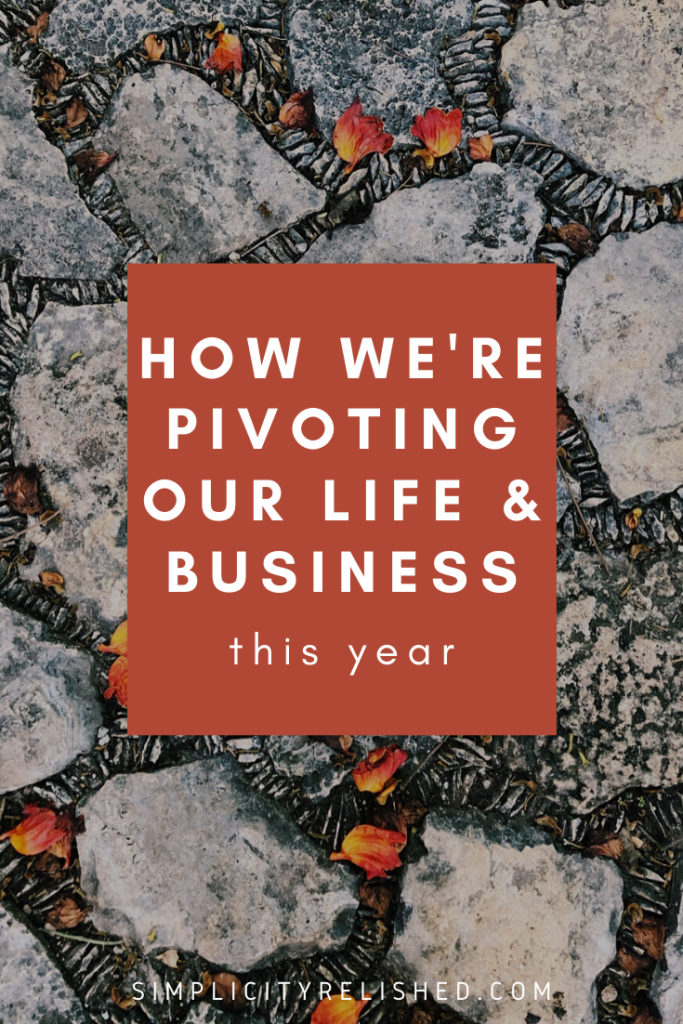2020 was already going to hold immense change for many of us. Perhaps you’ve been looking forward to your family growing or your career advancing. You may have had a wedding or two on the calendar. Perhaps you were gearing up for a big trip, or a big move.
Aaron and I were excited about a handful of the above this year. We’re both graduating from full-time graduate school (my MBA and his PhD). We are moving across the country back to California, where we grew up. Our startup nonprofit is beginning to gain some real traction. We were excited about a big international family trip over the holidays, and many smaller trips for work and leisure. Aaron was offered a postdoctoral position at Stanford. And we had at least one wedding of a childhood best friend was slotted for May.
Needless to say, things have changed. We’re still graduating, still moving, and still working. But everything else is dramatically disrupted.
We’re now more than a month into this stay-home lifestyle, and it has become apparent that this isn’t a brief aberration from “normal.” Rather, we’ve realized it’s time to completely reconsider what life might look like for the rest of 2020. It may have sounded dramatic just a few weeks ago to think this way, but the faster we embrace this change, the more intentional we can be.
Grieve, reflect, and plan
Some people have begun to name the emotional impact of the pandemic— and its far-reaching fallout— our collective trauma. While this depends on your definition of trauma, our society is certainly undergoing severe strain, uncertainty, and danger. This can be paralyzing, whether we are grieving lost loved ones, debating whether to show up for work, feeling alone, wishing we were alone, or any myriad of other reasons we may feel unsafe.
Grief and lament is essential in recognizing the season we are in and responding appropriately. And yet, we cannot sit in it forever. If this moment is going to be meaningful, if we are going to make progress on things that matter in light of this pandemic (or that have always mattered), we need to make new plans.
This is what we’re doing now, with our life, and with our business. Let’s start with a few assumptions.

A few operating assumptions about 2020
When I ponder the best way to spend the rest of this year, here are a few details that reflect the changes brought on by the coronavirus.
Travel will be difficult. For some, this doesn’t matter all that much. For us, however, who travel frequently for our business and also for pleasure, this signifies a massive shift. Our partners in Latin America are under lockdown for an indefinite amount of time as cases multiply. Meanwhile, there are travel restrictions all over the world to reduce the spread.
Cutting personal costs is a good idea. There’s no surprise that demand for many products has fallen dramatically. Anyone who is not already unemployed may want to check their spending to make sure they have enough cash on hand to weather this potentially long economic storm. This has implications for where people choose to live, and the day-to-day cost of living they’re accustomed to having.
Working and gathering virtually will continue. This, again, has a wide array of implications for different people. For the remainder of the year, we may not expect to commute to work, events, gatherings, stores, or anything else. Under this circumstance, our schedules will continue to flow from one task or meeting to another, but in the same location. Communication challenges will continue as well, hopefully improving over time. We may not hug our friends goodbye before we move.
Uncertainty is here to stay. The million- (multi-trillion) dollar question is when these constraints will be lifted, and when all flows of people and capital will return to normal (will it ever?). How long will it take us to be unafraid of getting infected? How long before we’re past this collective grief? We simply don’t know. So anything we choose to do or not do will be a reflection of our best guess. We can only prepare for the worst and hope for the best.

Pivoting our business (career)
Long story short, the core program we’ve spent the past 1.5 years developing with partners in Latin America cannot run right now, at least not in full. Restrictions on in-person gathering, along with travel, presents major barriers. So we’ve spent the past several weeks thinking about how we might respond, and here are some things you might be able to do in your work or business as well:
1. Take care of your people. Whether partners, clients, employees or stakeholders, reach out and check in. Sure, the coronavirus isn’t new anymore, but everyone processes differently. And when you do check in, choose empathy over judgment. People are allowed to feel what they feel, and it may be very different from you. Comparing our suffering to that of others is not helpful.
2. Identify your actual constraints. Has everything really ground to a halt, or does it just seem that way? Can you operate partially? Can you still pitch new projects and ideas, particularly meaningful ones that can help others? For a number of industries, there are so many constraints. But instead of sitting in paralysis, identify opportunities to serve— serving others is never a waste of time. And even if you have to do so for free, people will remember that you were one of the few that actually showed up for them. That kindness can go a long way.
3. Reinterpret your mission. Ask your organization, “Why do we exist?” Your answer cannot be your current strategy; it needs to go deeper. We all must recognize, as quickly as possible, that just because we can’t execute on an existing strategy doesn’t mean that we can no longer pursue our mission. The digital space is not just for social media, video streaming, and news. It’s a place to create useful products and content that many people can still access. If you’re creative, perhaps you can still pursue your mission using digital media to support the people you’ve been serving. Or, perhaps it’s time to partner up with other companies more advanced in this space and work together. In our own business and work, we’re leveraging both of these strategies.

Pivoting our life
Throughout our entire relationship— even before we got married— Aaron and I had a handful of priorities we pursued together. Together we worked hard to be hospitable, adventurous, and service-oriented. This year, we were looking forward to traveling to celebrate the completion of our graduate school programs. We were excited to settle in a new community in California and invite neighbors to our house. And we wanted to become more outdoorsy. Here are some ways we’re adjusting:
1. Leverage the new “normal” for reconnection. Just 6 months ago, some people might be caught off-guard by a phone call or text from a long-lost friend. That mindset has completely changed, and we can use it to rebuild those connections. In some ways this is a shared experience, and we can allow it to bring us together (virtually). It takes new practices though: scheduling ahead of time, taking the first step, and following through. But we are adults, we can do this!
2. Ground yourself in compassion and wellness. I’ve already said this many times to friends: we must be exceedingly kind to ourselves. Stress and uncertainty can make us self-critical, and we need to allow ourselves to be human. Simultaneously, rather than going on the umpteenth Netflix binge, let’s choose habits that are actually good for us: eating well, exercising, hydrating, reflecting, meditating, praying, sleeping. During this time, Aaron and I have started doing yoga together in the mornings and it has been so refreshing! So consider which wellness habits you want to cultivate and carry into the upcoming years of your life.
3. Get creative about fun and adventure. I can’t emphasize enough how the limits of travel are affecting us professionally and personally. Local and global exploration is part of how we (as very privileged people) get inspired, learn about others, and develop more empathy. And yet, this is a great time to try new ways of stimulating our minds and continuing to learn about other cultures without getting on a plane. So many elements from other traditions can be brought into our homes: music, literature, recipes, games, crafts, movies. Since we love to cook, we’ve dedicated ourselves to making Swedish cardamom buns, fresh tortilla, and handmade pasta. If you’re not into cooking, try other creative forms and let them teach you.
4. Be more intentional about time spent on- and offline. Those of us working from home might find ourselves in front of the computer all day. Conversations we used to have in person, on a walk, or over coffee are happening in the same place as all of our emails, spreadsheets, and learning. Because we’re increasing our screen time, it’s essential that we become more thoughtful about the time we’re spending. Consider shutting off screens an hour before bed, and read a book or write in your journal instead. I now incorporate this caution in my new morning and evening routine, and so can you.
5. Don’t forget to celebrate holidays and accomplishments. It’s slightly shocking even to us, but we’ve won 2 startup prizes thus far during quarantine! To be honest though, when I received those notifications, I let the excitement pass me by because I wasn’t sure how to celebrate. But then I realized that these happy moments of progress are even more important now, when we’re bombarded with difficult news daily. So— even if the win is small and you expected it to happen anyway— CELEBRATE. Open a bottle of wine, or turn on some music to dance around the room, or make your favorite dinner dish. Being present for our own joy is so important for the long haul.

We choose our attitude.
I’ll be the first to say that the pandemic and its effects are disproportionally affecting the most vulnerable in our society. In fact, our nonprofit is working with leaders and teams on the front lines of supporting low-income communities that were struggling even before all this happened.
However, it’s also important to recognize our own agency. I want to be able to look back at this time and say that I became the best version of myself, rather than the worst. We can choose that. We may not be perfect and we will certainly stumble, but the commitment is ours to make and determine.
Are there ways you’ve changed your business or lifestyle? I’d love to hear about it.

